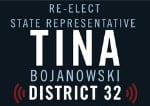Issues and Perpectives

A Preview of the 2020-2022 Budget of the Commonwealth
by the Kentucky Center for Economic Policy (KCEP)
Executive Summary of the KCEP Report from Kypolicy.org.
Kentucky’s state budget is the primary policy document of the commonwealth, establishing how the state lives out shared values. Through investments ranging from schools to infrastructure to health, the budget helps create the conditions in which Kentuckians either prosper together or struggle to access opportunity. Strong investments can give children a bright start, set the stage for a thriving economy, promote racial equity, reduce economic inequality, make Kentuckians healthier and happier and bridge gaps between rural and urban communities. The budget reflects priorities.
Yet Kentucky has been disinvesting in most areas of the budget for over a decade now. While many states have come out of the Great Recession and begun restoring the fundamental building blocks of a strong economy, Kentucky continues to cut. The most recent budget enacted in 2018 reduced funding another 6.25% in many crucial areas, and small increases in some agencies’ budgets barely staved off full-blown crises. Rising costs in the next biennium – including those due to harmfully high rates of incarceration, changes to pension assumptions and due to inflation – will leave little to none of the anticipated revenue growth to fill deep budget holes in human services, education, mental health and many other areas that have widened over the years. And while funding pensions at the actuarially required amount in the last two budget cycles has put these systems on better footing, sustainable new revenue is needed in order to alleviate pressure on other important budgetary priorities.
This report explores the issues facing the Governor and General Assembly as they craft the new 2020-2022 Budget of the Commonwealth – from both sides of the ledger. On the appropriations side, lack of funding increases is allowing inflation to erode core formula funding for schools, while other education funding streams like textbooks and Extended School Services have been deeply cut or completely eliminated. The average net cost to attend the state’s public universities has increased 40% since 2008 driven by repeated cuts in state funding for higher education. And Kentucky faces crises and underfunding problems in many areas of health and human services, including social workers handling nearly double the recommended caseloads.
On the resources side, weak revenue growth is anticipated over the biennium. The state faces long-term erosion due to a tax code filled with exemptions and breaks for special interests. New tax cuts for wealthy Kentuckians and corporations in the 2018 and 2019 legislative sessions negatively affect revenue collections in the biennium and going forward.
The experience of states like Kansas and North Carolina shows that giving tax breaks to those at the top is not an effective strategy for states to improve their economies. Putting Kentucky’s budget back on the path of shared values will require that legislators begin cleaning up the tax code to generate new revenue, or see another two-year budget in which disinvestment continues.
Kentucky Center for Economic Policy: Letter to the Public Pension Working Group
Dear Member of the Public Pension Working Group,
Thank you for the opportunity to provide input to the Public Pension Working Group on this vital issue facing the commonwealth. I am encouraged by the creation of this group as an important step in opening up the conversation to the public. I hope the working group will take the additional steps necessary to involve those directly affected by the issue, and invite comment from a wide variety of perspectives as you consider the best path forward. As an organization that has conducted regular analyses of Kentucky’s pension systems since 2012, we would be happy to provide input.
Kentucky Center for Economic Policy: State Should Move Forward With Recommendations to Shed Light on Tax Expenditures
Kentucky loses more than $13 billion every year through tax expenditures – tax breaks, exemptions and exclusions that leave us with less money for investments in schools, infrastructure and other building blocks of our communities – and bringing them under scrutiny is an essential first step toward a tax and budget system that reflects our priorities. Recent recommendations from a legislative task force to bring more accountability to this side of our budget should be enacted by the legislature.
